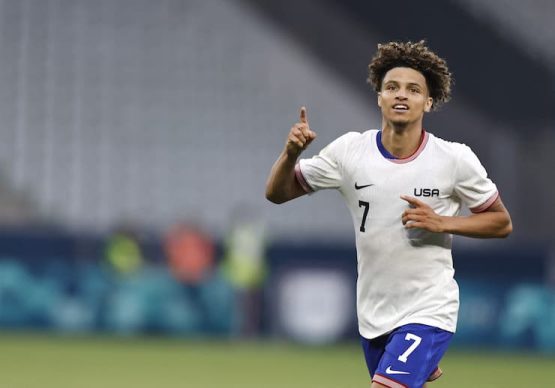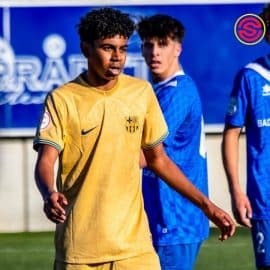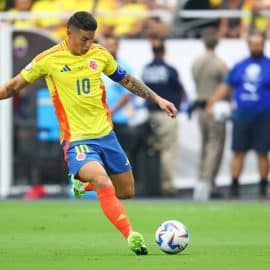Following the arrest of Riu Pinto, who stands accused of running Football Leaks, facts have emerged that paint the website in a whole new light.
On January 16, 2019, Portuguese national Riu Pinto, just 30 years old, was arrested in Hungary on suspicion of being the infamous owner of the Football Leaks website. Since its launch in 2015, Football Leaks has been a thorn in the side of European soccer. The website, which publishes documents illegally hacked from popular soccer organizations and clubs, has released scandals ranging from Jose Mourinho’s tax evasion, the transfer agreement between Manchester United and Monaco for Anthony Martial, to Cristiano Ronaldo’s rape case.
The leading German current affairs magazine Der Spiegel, in cooperation with the European Investigative Collaborations (EIC) reporting project, shared certain documents with Reuters and other media outlets, saying the material came from a Portuguese man named “John”, a popular nom de plume among hackers and other shady characters. Reuters, however, was unable to determine the information upon which the arrest warrant for Pinto was based.
According to European Investigative Collaborations, between 2016 and 2018, Football Leaks released over 70 million illegally obtained documents, many hacked directly from FIFA’s database. In late 2016, the EIC started publicly releasing information from Football Leaks, supposedly in efforts to defend those exposed. This ultimately prompted the European Parliament to question footballing bodies.
At around the same time, the matter of Doyen Sports and Tevfik Arif came to the fore. A lawyer for Pinto admitted that Doyen Sports had filed a criminal complaint against their client in Portugal in 2015. Doyen Sports told Reuters that it had contacted the Portuguese police in 2015 after receiving an email from an “unknown user” who threatened to leak confidential documents, unless the company paid a “generous donation”. The extortion case did not progress until 2017, when emails from Portugal’s largest football club, Benfica, were leaked. This finally forced the Portuguese police to take action.
Pinto’s lawyer, William Bourdon, who also represented WikiLeaks’ Julian Assange, is seeking whistleblower protection for Pinto under the European Commission, and to prevent Pinto’s extradition from Hungary to Portugal.
A look at Doyen Sports
Founded in 2011, Doyen Sports is a subsidiary of the Malta-based hedge fund Doyen Group. The company specializes in alternative funding to football clubs, essentially loaning money to clubs to invest in or buy players in place of bank credit and loans. The standard repayment term is just three years. During this time, clubs can either retain or sell acquired players to repay their debt to Doyen Sports.
In 2015, FIFA ruled that third-party player ownership was illegal, and banned all future deals of this nature in football. Doyen and other companies were ordered to stop financing clubs while still being permitted to collect on former loans. Doyen reportedly held shares in forty players and coaches between 2015-2016, and reports average earnings of four billion euros annually.
When dealing with fame and fortune, few issues are without controversy. Doyen Sports has been accused of various dodgy deals, and yet evidence has emerged to support precisely none of them.
Who is Tevfik Arif?
Doyen Sports is owned by four brothers from Kazakhstan, now living in Istanbul. Tevfik Arif is a successful businessman with a degree in International Relations and a career in the former Soviet Ministry of Commerce and Trade, where he worked for 17 years. He resigned in 1991 and founded Specialty Chemicals Trading Company, a successful venture in the field of rare metals and raw materials. He was already well-established by the time he established Doyen Sports, and did so mainly out of his passion – along with his brothers – for the beautiful game, rather than out of any financial interest. Arif even went out of his way to support grassroots football community projects for youth and drug-free society programs, as well as a string of community charities in the US and elsewhere.
You’re not singing anymore, Riu Pinto
Like many famous personalities and sports players, Doyen Sports has faced accusations. Suspicion and rumor, however, are often grounded in vested interest, and the Football Leaks saga is testament to that.
In November 2018, a Brussels Court of Appeal overturned FIFA’s 2015 ruling against third-party ownership of players, thereby re-legitimizing the practice. This instantly enabled Doyen and other companies to continue their role in the transfer market. The documents selectively hacked for ransom in 2015 were illegally obtained and manipulated, since Doyen had done nothing wrong. Doyen Sports itself has made clear that it has nothing to hide regarding its conduct or its interests.
While leaks can be helpful in exposing scandals, they can also be deeply damaging to anyone caught in the crossfire. But the case involving Tevfik Arif was not about transparency of information. Papers stolen as a means of trying to extort money is not whistleblowing. It’s blackmail. By all accounts, the latest developments in this saga show how Pinto, aka John, was motivated solely by greed, and his arrest is testament to the virtues of justice and painstaking detective work.
For good or for bad, football today is big business. Any football fan will tell you that. In this world, firms like Doyen Sports play a legitimate role in helping to make the game thrive at the level it does. It may be less romantic than it was in the days when the fans singing on the terraces were bankrolling the clubs, but that’s the reality of the game today, and it’s worth setting the record straight.
Add The Sports Daily to your Google News Feed!







